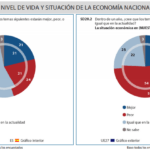The EU brings crypto-assets, crypto-assets issuers and crypto-asset service providers under a regulatory framework for the first time.
The Council presidency and the European Parliament reached a provisional agreement on the markets in crypto-assets (MiCA) proposal which covers issuers of unbacked crypto-assets, and so-called “stablecoins”, as well as the trading venues and the wallets where crypto-assets are held. This regulatory framework will protect investors and preserve financial stability, while allowing innovation and fostering the attractiveness of the crypto-asset sector. This will bring more clarity in the European Union, as some member states already have national legislation for crypto-assets, but so far there had been no specific regulatory framework at EU level.

Commission makes available fresh EUR 100 million for innovative clean technology projects |
Regulating the risks related to crypto-assets
MiCA will protect consumers against some of the risks associated with the investment in crypto-assets, and help them avoid fraudulent schemes. Currently, consumers have very limited rights to protection or redress, especially if the transactions take place outside the EU. With the new rules, crypto-asset service providers will have to respect strong requirements to protect consumers wallets and become liable in case they lose investors’ crypto-assets. MiCA will also cover any type of market abuse related to any type of transaction or service, notably for market manipulation and insider dealing.
Actors in the crypto-assets market will be required to declare information on their environmental and climate footprint. The European Securities and Markets Authority (ESMA) will develop draft regulatory technical standards on the content, methodologies and presentation of information related to principal adverse environmental and climate-related impact. Within two years, the European Commission will have to provide a report on the environmental impact of crypto-assets and the introduction of mandatory minimum sustainability standards for consensus mechanisms, including the proof-of-work.
To avoid any overlaps with updated legislation on anti-money laundering (AML), which will now also cover crypto-assets, MiCA does not duplicate the anti-money laundering provisions as set out in the newly updated transfer of funds rules agreed on 29 June. However, MiCA requires that the European Banking Authority (EBA) will be tasked with maintaining a public register of non-compliant crypto-asset service providers. Crypto-asset service providers, whose parent company is located in countries listed on the EU list of third countries considered at high risk for anti-money laundering activities, as well as on the EU list of non-cooperative jurisdictions for tax purposes, will be required to implement enhanced checks in line with the EU AML framework. Tougher requirements may also be applied to shareholders and to the management of the CASPs), notably with regard to their localisation.
A strong framework applicable to so-called “stablecoins” to protect consumers
Recent events on the so-called “stablecoins” markets showed once again the risks incurred by holders in the absence of regulation, as well as the impacts it has on other crypto-assets.
In fact, MiCA will protect consumers by requesting stablecoins issuers to build up a sufficiently liquid reserve, with a 1/1 ratio and partly in the form of deposits. Every so-called “stablecoin” holder will be offered a claim at any time and free of charge by the issuer, and the rules governing the operation of the reserve will also provide for an adequate minimum liquidity. Furthermore, all so-called “stablecoins” will be supervised by the European Banking Authority (EBA), with a presence of the issuer in the EU being a precondition for any issuance.
The development of asset-referenced tokens (ARTs) based on a non-European currency, as a widely used means of payment, will be constrained to preserve our monetary sovereignty. Issuers of ARTs will need to have a registered office in the EU to ensure the proper supervision and monitoring of offers to the public of asset-referenced tokens.
This framework will provide the expected legal certainty and allow innovation to flourish in the European Union.
EU-wide rules for crypto-asset service providers and different crypto assets
Under the provisional agreement reached, crypto-asset service providers (CASPs) will need an authorisation in order to operate within the EU. National authorities will be required to issue authorisations within a timeframe of three months. Regarding the largest CASPs, national authorities will transmit relevant information regularly to the European Securities and Markets Authority (ESMA).
Non-fungible tokens (NFTs), i. e. digital assets representing real objects like art, music and videos, will be excluded from the scope except if they fall under existing crypto-asset categories. Within 18 months the European Commission will be tasked to prepare a comprehensive assessment and, if deemed necessary, a specific, proportionate and horizontal legislative proposal to create a regime for NFTs and address the emerging risks of such new market.
Next steps
The provisional agreement is subject to approval by the Council and the European Parliament before going through the formal adoption procedure.
Background
The European Commission came forward with the MiCA proposal on 24 September 2020. It is part of the larger digital finance package, which aims to develop a European approach that fosters technological development and ensures financial stability and consumer protection. In addition to the MiCA proposal, the package contains a digital finance strategy, a Digital Operational Resilience Act (DORA) – that will cover CASPs as well – and a proposal on distributed ledger technology (DLT) pilot regime for wholesale uses.
This package bridges a gap in existing EU legislation by ensuring that the current legal framework does not pose obstacles to the use of new digital financial instruments and, at the same time, ensures that such new technologies and products fall within the scope of financial regulation and operational risk management arrangements of firms active in the EU. Thus, the package aims to support innovation and the uptake of new financial technologies while providing for an appropriate level of consumer and investor protection.
The Council adopted its negotiating mandate on MiCA on 24 November 2021. Trilogues between the co-legislators started on 31 March 2022 and ended in the provisional agreement reached.

Euro Banknotes – Our Money, Our Journey |







Leave a Reply